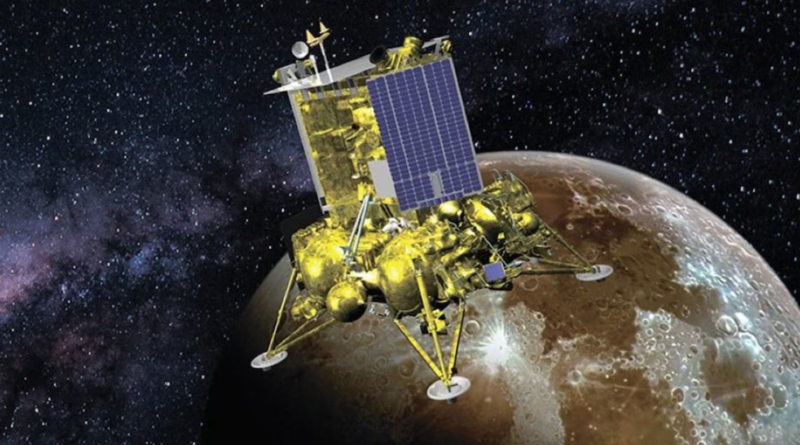Luna-25 Lunar Mission Encounters Setback: Russia’s Roskosmos Addresses the Crash
In a recent development that has captured the attention of space enthusiasts and scientists worldwide, Russia’s Luna-25 lunar mission has faced an unexpected setback as the spacecraft crashed into the Moon’s surface. The mission, aimed at exploring the Moon’s south pole region, is part of Russia’s ongoing efforts to reinvigorate its lunar exploration program. In this article, we delve into the details of the Luna-25 mission, the causes of its crash, and the implications for Russia’s space agency, Roskosmos.
The Luna-25 Mission
The Luna-25, also known as Luna-Glob, is the latest iteration of Russia’s long-standing lunar exploration program. The mission had ambitious objectives, including studying the Moon’s soil composition and measuring cosmic radiation on its surface. Additionally, Luna-25 aimed to evaluate the potential for future human missions and lunar resource utilization.
The Crash Landing
On July 30, 2023, the Luna-25 spacecraft attempted its historic landing on the Moon’s south pole, a region of great scientific interest due to its unique geological characteristics and the possibility of water ice deposits in the permanently shadowed craters. Unfortunately, during the descent phase, the spacecraft encountered difficulties, ultimately leading to a crash landing. This unexpected outcome has raised concerns and garnered significant attention in the space community.
Causes of the Crash
As of the latest updates from Russia’s space agency, Roskosmos, the exact causes of the Luna-25 crash are still under investigation. Preliminary reports suggest that a combination of factors, including technical issues and challenges during the landing sequence, may have contributed to the unsuccessful landing. The complexity of lunar missions, especially those targeting the polar regions, cannot be underestimated, as they involve navigating challenging terrain and making precise adjustments in real-time.
Implications and Future Prospects
The Luna-25 crash is undoubtedly a setback for Russia’s lunar exploration ambitions, but it is essential to recognize that space exploration is inherently risky, and failures are part of the learning process. Roskosmos has reaffirmed its commitment to lunar exploration and its intent to continue pursuing lunar missions. This setback is expected to lead to a thorough review of the Luna-25 mission, incorporating lessons learned to improve future lunar endeavors.
Moreover, the international space community understands the importance of collaboration in space exploration. With multiple countries and private companies embarking on lunar missions, the sharing of knowledge and experiences will continue to be crucial for the success of future lunar projects.
The Luna-25 mission crash into the Moon’s surface serves as a reminder of the formidable challenges that space agencies face when venturing into the unknown. Russia’s Roskosmos, like other space agencies, will undoubtedly use this experience to refine its lunar exploration efforts. As humanity’s collective interest in the Moon intensifies, the Luna-25 mission, though faced with adversity, remains a testament to the relentless pursuit of knowledge and the indomitable spirit of exploration that characterizes the space age. In the end, setbacks like this only underscore the importance of perseverance and collaboration in our quest to unlock the mysteries of the cosmos.

